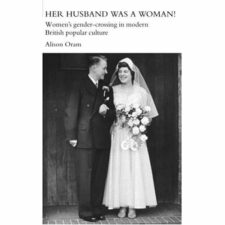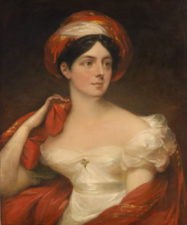In the years following the Second World War, many young women in the East End left school at fourteen and went to work in Tate & Lyle’s two factories in Silvertown. The work was difficult, repetitive, and sometimes hazardous, while the ‘sugar girls’ faced sexist regulations – earning less than their male colleagues and being forced to leave when they married or fell pregnant. But while researching our book The Sugar Girls (Collins, 2012), based on interviews with those who worked there in the 1940s, 1950s and 1960s, one woman in particular stood out for the considerable role she played in improving the lot of her fellow female workers – a young sugar-packer named Edna Henry.
Edna was one of the first black women to work at the factory, and from her earliest days at Tate & Lyle she learned that she would need to fight in order to be treated fairly. When a promotion went to the sister-in-law of a supervisor, even though Edna had longer service and better time-keeping than the other girl, she bravely knocked on the door of the forelady’s office and demanded that the managers reconsider their decision. After checking her service record, they were forced to acknowledge that the job should have been hers, and reluctantly gave her the promotion.
When another girl lost her job because she had been taking time off to care for her mother, who was sick with cancer, Edna marched up to the office again to complain. ‘It’s a disgrace what you’re doing,’ she told her awe-struck bosses. ‘That poor girl is going through enough, and if you dare try to dismiss her I’m going to take it further.’ Thanks to Edna, the young woman stayed in her job – and Edna’s intervention so impressed the other girls that they made her the union shop steward for their department.
Once she began speaking for the union, Edna endeavoured to make herself an expert on industrial law, determined that her superiors should not take advantage of the girls’ lack of formal education. On one occasion, she came in to work to find that the factory floor was unusually cold. Knowing that the minimum working temperature was 61 degrees Fahrenheit, she demanded that a foreman come down with a thermometer. Despite his protestations that she and her colleagues could just work in their coats and hats, Edna stood her ground – and marched the entire department of women to the canteen, where they sat out the rest of the day. It was a daring move, but her unofficial strike paid off – the girls received a full day’s pay for no work, and when they came in the next morning the factory was warm again.
Edna’s strong sense of right and wrong, and her determination to stand up for the underdog, was forged during a difficult childhood. Her father died when she was a little girl, and her mother had gone on to marry a man from the local paint factory, Pinchin Johnson’s. Edna’s stepfather was a violent man, who often beat her mother. On one occasion, he attempted to strangle her in front of Edna – who tried to intervene by hitting him over the head with a poker. Her stepfather responded by threatening to kill Edna instead, and chased her with a cut-throat razor. Edna escaped, but spent the entire night hiding in the local timber yard, too scared to go home.
Edna grew up into a young woman who was incapable of standing by while another person suffered, and who would do all she could to fight injustice wherever she found it. At Tate & Lyle, she rose through the ranks of the union until she was made the representative for her entire factory. Among her many achievements was the introduction of a multi-skills programme, which provided some variety in what were otherwise very repetitive jobs, and meant that the women were paid the same in every department.
Edna was surprised one day when the management called her in and offered her a promotion to supervisor. Her wry response was: ‘Is this about my ability or buying my silence?’
Her manager assured her it was nothing of the sort, and reminded her of the financial incentive in taking the position. But Edna turned the promotion down, concerned that if she wasn’t one of the girls, she would no longer be able to represent their interests. ‘Money don’t mean a thing to me,’ she told him, ‘principles do.’
When Edna retired from Tate & Lyle after thirty years of service, a male manager – one of her old adversaries – told her she had ‘shown a lot of balls’ over the years. But Edna explained to him that all she had ever wanted was fair treatment between equals. ‘Just because you’re a manager, there’s no law that says we’re different,’ she told him. ‘You wear white overalls and I wear green, but we both work for Tate & Lyle.’
Nuala Calvi
Nuala Calvi is co-author, with Duncan Barrett, of The Sugar Girls: Tales of Hardship, Love and Happiness in Tate & Lyle’s East End. She has written for The Times, Independent, BBC and CNN, as well as numerous Time Out books. With a strong interest in community history, she took part in the Streatham Stories project to document the lives of people in South London.
Edna’s story is one of many told in The Sugar Girls (Collins, 2012). For more information, and to order the book, visit www.thesugargirls.com.

